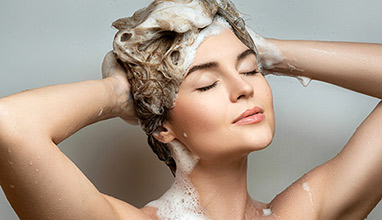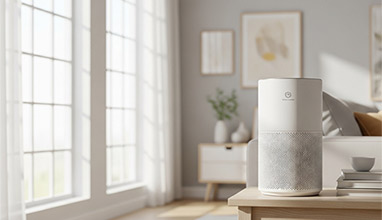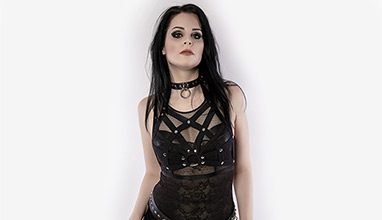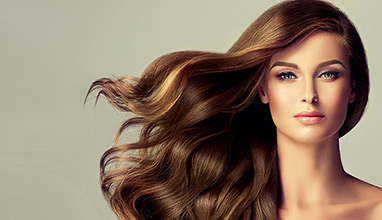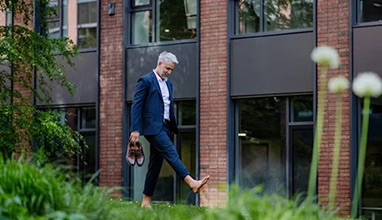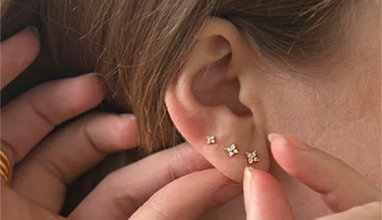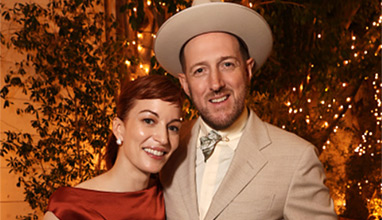How water type affects our hair
While many of us style our hair daily, it’s likely that most of us don’t understand our hair at a granular, microscopic level. The way we treat it, from applying heat to brushing, can have a big impact. Colouring it frequently and without the correct aftercare can also impact the health of your hair.
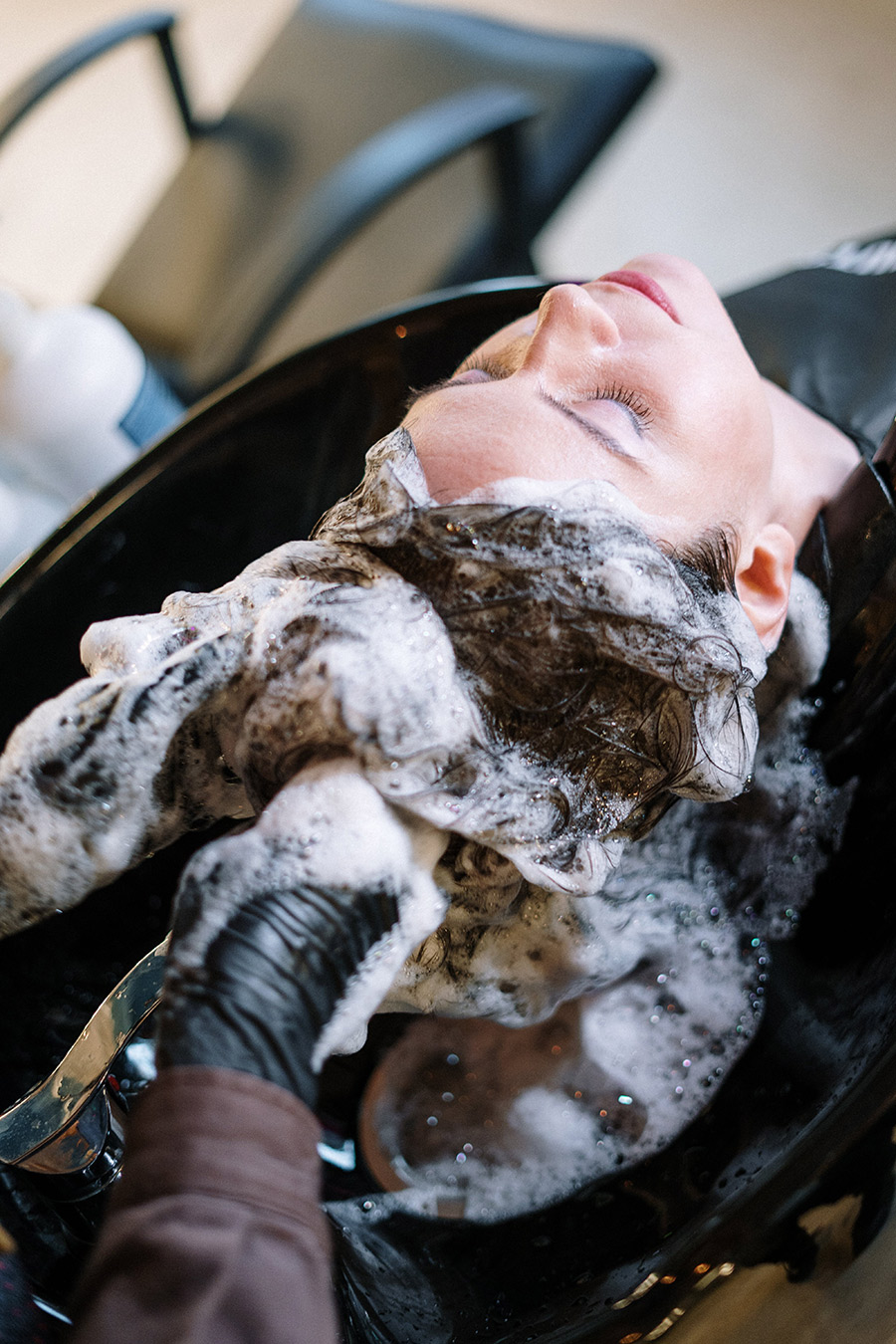
And beyond how we physically treat our hair, environmental and psychological factors can play a role. For example, during the pandemic, many individuals suffered hair loss, largely due to the stress induced by the drastic change to our routines and uncertainty during this period.
Even washing your hair can have more of an impact than you might think. Hair washing tends to be a weekly or even daily ritual, depending on your hair type and preferences. If you have afro, curly or textured hair, this routine with vary yet again, with many washing it every couple of weeks. But how can our hair-washing routine affect our hair’s long-term health? Here’s what you need to know.
What’s in water that affects our hair?
Did you know that the type of water you wash your hair with will vary in its mineral content? According to reports, areas with ‘very hard water’ include East Anglia, the East Midlands and the South East, while soft water tends to be found across Wales and the North West of the UK. Hard water contains elements like calcium, potassium and magnesium. This is down to rainwater collecting minerals from stones or from pipes and taps.
Hard vs. Soft water
Although you can’t tell the difference between soft and hard water just by looking, they vary greatly in their composition. Because of this, they can impact hair and scalp differently.
Hard water
Hard water tends to create a build-up of minerals known as ‘soap scum’ or ‘limescale’. This tends to be visible on any glass in your bathroom, such as the shower door. However, you might spot it in your kettle or other kitchen appliances too.
How hard water affects hair and how to prevent it
This build-up can cause your hair to become dry over time. It essentially forms a barrier that stops moisture from reaching your hair, causing it to become more brittle. You might experience breakage too, where the follicles and strands have been weakened over time. This can make seemingly normal acts like brushing your hair cause more damage.
If you have coloured hair, hard water may cause it to fade over time. However, you can help to minimise the impacts of this. For example, you can keep your colour looking vibrant for longer by applying toner with each colour treatment. If you have curly, textured or afro hair, hard water can cause more frizz, making it harder to handle and style your hair. To avoid this, some people invest in shower filters or add apple cider vinegar to the water when you rinse your hair. Leave-in conditioner and oils can also help to keep your hair more hydrated.
It’s common for people to experience dry or itchy skin too – and this unfortunately can extend to your scalp, which is exposed to these minerals every time you wash your hair. And in extreme cases, you may even experience hair loss. People with conditions like psoriasis may be more prone to this.
If you own a salon, it’s important to be mindful of this information if you have hard water, as this could largely dictate the type of products you use on your client’s hair. After all, every hairdresser wants to offer the best service to their clients.
Soft water
Unlike in hard water, the concentration of minerals in soft water is far less intense. There’s a smaller risk of build-up on the scalp, meaning you’re less prone to breakage and dryness. Hair products are able to penetrate the hair follicle more effectively, helping it look healthy. This makes it easier to get a ‘shiny’ and ‘soft’ appearance for those with straight hair.
If you have curly, textured or afro hair, soft water is ideal because it won’t strip away any natural oils. You won’t be battling with the level of frizz caused by hard water.
How soft water can affect hair and how to prevent it
With soft water, you should be aware that it may make your hair feel thinner. For some people, this might make them feel paranoid about possible hair loss if the change feels especially drastic. This is because soft water helps to soften your hair, making it look less voluminous in comparison to hair washed with hard water.
Soft water also tends to contain more chlorine, which can cause your scalp to become dry. A good cleansing rinse and the use of moisturising hair masks can help with this. Also, make sure the water isn’t too hot, as this could contribute to dryness by stripping away minerals.
Understanding pH balance
Hair has a natural pH of 4.5 to 5.5 and because pure water has a pH of 7, this makes it more alkaline in comparison. In the UK, tap water should have a pH between 6.5 and 9.5, which can affect our hair in certain ways.
Did you know that as the pH balance gets greater, this can prompt the shaft of your hair cuticle to open? The impact of this is that water or products with a high pH level can be somewhat damaging and cause your scalp to flake. Curly hair is especially prone to this as the texture means that the cuticle is already partially open.
Using pH-balanced products on your hair
To help minimise the impact of pH when washing your hair, you can use pH-balanced products. These will generally exclude harmful products such as sulphates and parabens. Using a pH-balanced shampoo and conditioner will help to neutralise the process, allowing your hair to stay naturally acidic.
According to a study, Swansea was revealed to be the location with the best water for hair washing. The Welsh city has soft water with below 60 particles of hardness dissolved in per million particles of water (PPM).
While moving to Swansea may not be feasible for everyone, the second-best option is to understand the ins and outs of how water can impact our hair-washing routines and use the right products for our hair type.
Photo: pexels.com
Hits: 4055 | Leave a comment
Tags:hair washing, hair styling, water



